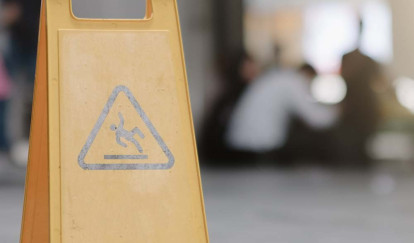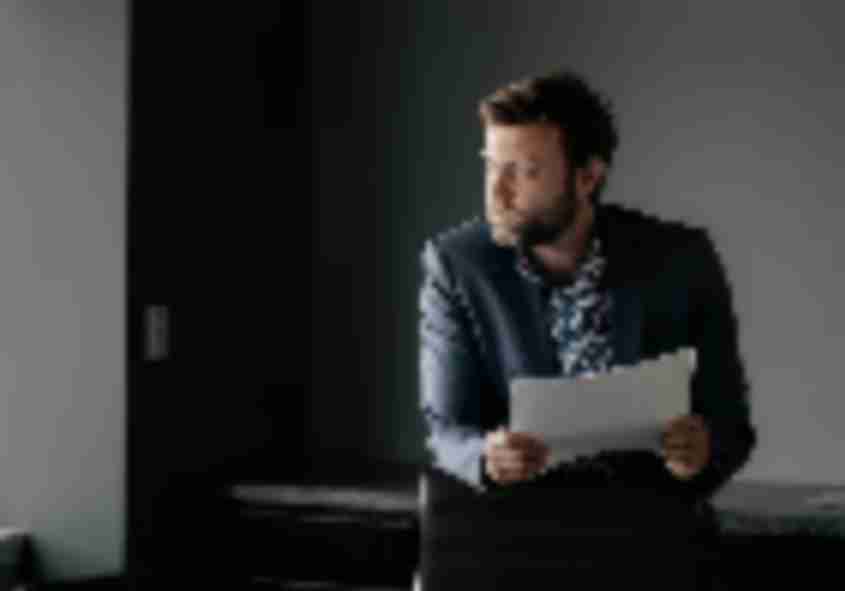
Share This Article
What is premises liability? Premises liability occurs when someone is injured on another property, such as a neighbor's house, restaurant, park, or workplace, because of a dangerous condition. Some common types of premises liability include:
- Elevator accidents
- Animal bites
- Collapsed stairs
- Falling objects
- Fires
- Accidents at amusement parks or swimming pools
- Negligence by premises security
- Slips, trips, and falls on the premises
Often, those dangerous conditions are caused by the negligence of the property owners. If this is the case, you may be able to file a premises liability claim and receive compensation for the economic and non-economic costs incurred from your injury. You can also sue for premises liability accidents that happened to a close family member in the event that the victim of the accident is deceased. In this article, we'll discuss what is involved in a premises liability lawsuit and how to file your claim.
Preparing to File a Premises Liability Lawsuit
Not every injury that occurs on someone else's premises is grounds to file a premises liability lawsuit. You must be able to prove that there was a duty of care that was breached, leading to the dangerous condition that caused your injury. It's important to take these steps to prepare your premises liability claim and determine whether or not you have a case before you file.
Gather Relevant Evidence
First, you'll want to gather as much evidence as you can. Take pictures of the scene, including the unsafe conditions that led to your injury. Take pictures of your injury and make sure to collect any medical records, incident reports, and witness statements. You should also keep any medical bills or other related records of expenses due to the injury.
Consult With a Premises Liability Lawyer
Next, you'll want to speak with an attorney who specializes in personal injury and premises liability law. This attorney can review your evidence and help you determine whether or not the property owners were negligent in the duty of reasonable care they should have provided. If you have a case, your premises liability lawyer can help you draft your claim and prepare for the next steps of your lawsuit.
The Filing Process for a Premises Liability Lawsuit
So you and your personal injury lawyer have determined that you have a case for a premises liability lawsuit and have decided to move forward. Let's discuss what comes next, from your responsibilities to what you can expect from the courts.
Steps to Filing a Premises Liability Lawsuit
The first step in the process of filing a premises liability claim may not actually be filing the claim. In some cases, accident victims and property owners may be able to work out the issue through premises liability settlements and negotiation. Only when that fails does the case go to court. These are the steps you'll typically follow:
- Step One: Draft and send a demand letter. A demand letter is a formal letter laying out your premises liability case and why you are entitled to compensation. You will detail the amount of compensation you're owed and then the next steps you will take if not paid. If the property owner is willing to work with you, this will be the first step in those negotiations.
- Step Two: Try to settle the case. Your attorney will negotiate with the property owner's attorneys or the insurance adjusters to get you the compensation you deserve. The other side may have a counteroffer of compensation, which you can accept or deny. If negotiation fails, you will take your case to court.
- Step Three: File a premises liability claim. If premises liability lawsuit settlement negotiations fail, your next step is to file a complaint with the court. This will lay out the facts of the case and the compensation that you believe you are entitled to. You will then attach your evidence as exhibits to your complaint.
Understand the Role of the Courts
A personal injury lawsuit will be heard either by a judge (bench trial) or a jury (jury trial) who will determine the outcome of the case. Most personal injury cases are jury trials. In these cases, the role of the judge will be to oversee the case and make sure that both sides are represented fairly. They will also oversee the selection of the jury.
In a bench trial, the judge will take into account the law and the specifics of the case and choose to rule in favor of the plaintiff or defendant. They will then determine how much money to be awarded to either side.
After Filing: What to Expect
After you file your claim, the defendant will have a chance to file their answer and potentially their counterclaim. The next step is discovery. You can request the production of documents and evidence from the client, as well as answers to interrogatories that your lawyer drafts and sends to the other side. The defendant can do the same. Discovery can be a lengthy process that must be completed before the case actually goes to court.
Once in court, the judge or jury will hear the case from both sides and determine an outcome. There are two main types of compensation you can receive:
- Economic Compensation: Covers expenses that have a numerically quantifiable amount, such as medical bills, lost wages, disability, and so on.
- Non-Economic Compensation: Covers damages associated with the emotional impact of your injury, such as pain and suffering, emotional distress, humiliation, or loss of enjoyment.
If the judge or jury rules in your favor, the judge may decide to award you all or part of your claim.
How an Experienced Premises Liability Lawyer Can Assist You
An experienced premises liability attorney such as those at Commonwealth Law Group can both help you determine whether you have a case, and prepare your case to give you the best chance of success. With experience and compassion, we will fight for your right to the compensation you deserve. Contact Commonwealth Law Group today to learn more or to schedule a consultation.
If you have been injured at work or through the negligence of another individual or entity, contact us at (804) 999-9999 or or use the form below to connect with our legal team. We will fight to get you the justice you deserve.
